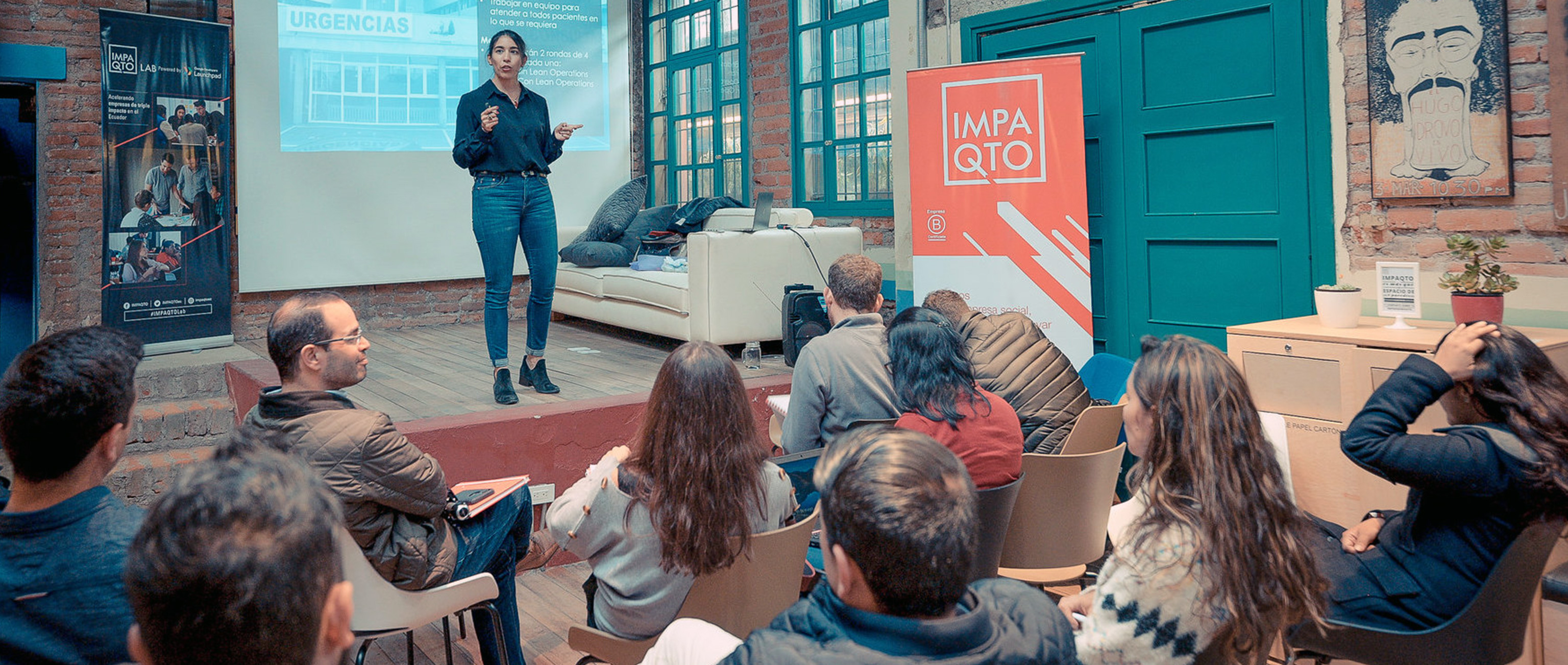2021 Skoll World Forum: Closing the Distance

This year, once again, the Skoll World Forum placed the social entrepreneurs and innovators front and center of the conversation, inviting those of us who have made it our mission to see them thrive to explore new ways to weave the fabric on which impact happens. Among those networks, the impact investing ecosystem and the actors within it need to embrace systems thinking, leverage creativity to design the necessary financing mechanisms, and be adaptable to changing circumstances. For the impact investing world, we’ve reflected on the three most important lessons from the Skoll World Forum.
The level of complexity of the global challenges we face requires strategic visions and collaborations that apply systemic thinking to tackle them from the various fronts—an approach that we advocate in creating and fomenting impact investment ecosystems across different industries and regions.
In this year’s Skoll World Forum, the panel session on “Harnessing Capital Markets for Sustainable Impact” illustrated how an impact investing ecosystem can leverage systems thinking to solve a vital problem.
The innovation of these investors in the environmental sustainability world is a great example for emerging and early stage impact ecosystems. From our vantage point in the Andean region, we see a significant opportunity to replicate this systems thinking approach to address some of the deep problems in Latin America, including economic inequality, environmental conservation, lack of educational opportunities, and lackluster public health systems.
These societal challenges are complex, but we believe that for-profit social enterprises have the potential to generate a significant impact in ways that are innovative, sustainable, and scalable.
For example, online-learning platform Poliestudios is improving educational attainment through courses in a variety of topics. During the pandemic the founders launched a series of courses to help over 70,000 teachers in Latin America improve their virtual teaching methodology.
We are seeing examples of social enterprises making an impact in Latin America, but there could be many more if we can solve the “missing middle” financing gap for early-stage companies. 2020 data from ANDE shows that the average investment size among deals in Latin America is US$1 million, which leaves out the smaller businesses that struggle most to access capital.
The “Harnessing Capital Markets for Sustainable Impact” panel also demonstrated the importance of creative and innovative financing mechanisms to channel capital effectively to address these global challenges, with panelists investing through equity, debt, litigation financing, and carbon offsets.
Our team in IMPAQTO, an ecosystem-builder in the Andean region, is pursuing this path through its launch of IMPAQTO Capital, a new impact investing fund providing flexible capital to early-stage social enterprises. We launched IMPAQTO Capital after identifying and studying the missing middle gap, recognizing that filling this gap required creativity in using a non-traditional fund structure and innovation in the form of the flexible investment instrument of revenue-based financing.
We welcome more actors entering the impact ecosystem in Latin America with creative financing structures in order to expand the ability of capital markets to solve the targeted problems. In other words, we should follow the model shown by the panelists who apply systems thinking and diverse financing instruments to tackle climate change by applying the same principles to the regional impact ecosystem in Latin America.
In addition to systems thinking and innovative financing structures, the Skoll World Forum catalyzed the insight that adaptability is a fundamental characteristic of resilience. In the panel “Can Virtual Due Diligence Help Funders Prioritize Proximity?”, we heard that the ability to adapt due diligence processes to the virtual world was crucial for funders and investors in 2020.
The pandemic has favored organizations that already had proximity and forced those that did not to adapt to new ways of building connections. Post-pandemic, we will see more investors finding creative ways to close the distance between them and the organizations in which they invest as we all adapt to the new normal. As company founders and builders of the impact ecosystem in Latin America, we draw on this lesson to build adaptability into our teams and workflows to enable them to thrive regardless of the context or circumstances.
Jeff Skoll reminds us that “a little bit of good can turn into a whole lot of good when fueled by the commitment of a social entrepreneur”. This year’s Skoll World Forum showed impact investors that this whole lot of good can be multiplied even further through an impact ecosystem that embraces systems thinking, leverages innovative financing structures, and prioritizes adaptability.
Want more stories of transformational change on the world’s most pressing problems? Sign up for Skoll Foundation’s monthly newsletter.
No Result
Notifications